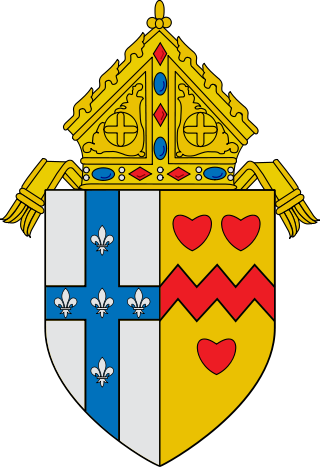
Osgyth was an English saint. She is primarily commemorated in the village of Saint Osyth, Essex, near Colchester. Alternative spellings of her name include Sythe, Othith and Ositha. Born of a noble family, she founded a priory near Chich which was later named after her.
Saint Irene may refer to:

July 26 - Eastern Orthodox Church calendar - July 28
Saint Agnes of Rome (291–304) is a virgin martyr, a patron saint of chastity, feasted on 21 January.
The Church of England commemorates many of the same saints as those in the General Roman Calendar, mostly on the same days, but also commemorates various notable Christians who have not been canonised by Rome, with a particular though not exclusive emphasis on those of English origin. There are differences in the calendars of other churches of the Anglican Communion.
The word saint derives from the Latin sanctus, meaning holy, and has long been used in Christianity to refer to a person who was recognized as having lived a holy life and as being an exemplar and model for other Christians. Beginning in the 10th century, the Catholic Church began to centralise and formalise the process of recognising saints; the process whereby an individual was added to the canon (list) of recognised saints became known as canonisation.

Prior to the revision of the Anglican Church of Canada's (ACC) Book of Common Prayer (BCP) in 1962, the national church followed the liturgical calendar of the 1918 Canadian Book of Common Prayer. Throughout most of the twentieth century, the situation in Canada resembled that which pertained in much of the Anglican Communion: There was uncertainty as to whether post-Reformation figures could or should be commemorated. In the words of the calendar's introduction, "New names have been added from the ancient calendars, and also from the history of the Anglican Communion, without thereby enrolling or commending such persons as saints of the Church." The 1962 revision added twenty-six post-Reformation individuals, as well as commemorations of the first General Synod and of "The Founders, Benefactors, and Missionaries of the Church in Canada." Of the calendar days, twenty-eight were highlighted as "red-letter days" — that is, days of required observation.
Eulalia is a feminine given name of Greek origin, Ευλαλια, meaning "well-spoken." It may refer to:

The Saint Gayane Church is a 7th-century Armenian church in Vagharshapat (Etchmiadzin), the religious center of Armenia. It is located within walking distance from the Etchmiadzin Cathedral of 301. St. Gayane was built by Catholicos Ezra I in the year 630. Its design has remained unchanged despite partial renovations of the dome and some ceilings in 1652.
In the Calendar of the Scottish Episcopal Church, each holy and saint's day listed has been assigned a number which indicates its category. It is intended that feasts in categories 1 - 4 should be kept by the whole church. Days in categories 5 and 6 may be kept according to diocesan or local discretion. Commemorations not included in this Calendar may be observed with the approval of the bishop.
Æthelflæd is an Anglo-Saxon female name meaning "noble beauty". Notable people with the name include:
Saint Laura of Cordoba was a Spanish Christian who lived in Muslim Spain during the 9th century. She was born in Córdoba, and became a nun at Cuteclara after her husband died, eventually rising to become an abbess. She was martyred by Muslims, who took her captive and scalded her to death by placing her in a vat of boiling pitch. Her feast day is on 19 October; she is one of the Martyrs of Córdoba.
St. Mother Irini was the Coptic Abbess of the St. Philopateer Mercurius’ Convent in Old Cairo, Egypt and an influential figure in the Coptic Christian community of Egypt.
Gayane, also spelled Gayaneh, is a popular Armenian female name of unknown meaning. Some relate it to the Ancient Greek word gaia, who was the "earth goddess," see Gaia.
Dorothea, also spelt Dorothee (German), Dorothée (French), and Dorotea, is a female given name from Greek Δωροθέα (Dōrothéa) meaning "god's gift". In English it is more commonly spelt Dorothy.
Saint Aurea may refer to:

The Personal Ordinariate of Our Lady of Walsingham in England and Wales is a personal ordinariate in the Latin Church of the Catholic Church immediately exempt, being directly subject to the Holy See. It is within the territory of the Catholic Bishops' Conference of England and Wales, of which its ordinary is a member, and also encompasses Scotland. It was established on 15 January 2011 for groups of former Anglicans in England and Wales in accordance with the apostolic constitution Anglicanorum coetibus of Pope Benedict XVI.
Gayane or Gayaneh is an Armenian female name, which may refer to:

Saint Laura of Constantinople was a Christian who lived in Constantinople during the 15th century. She was born in Greece into a noble family: her father was a Latin knight named Michael and her mother was Albanian. Her name was Theodolinde Trasci. After she became a nun in Constantinople, she changed it into Laura, eventually rising to become an abbess. She was martyred by the Ottoman Turks who took Constantinople on 29 May 1453. They scalded her to death with the other 52 sisters of her convent. Her feast day is on May 29.
In the Calendar of the Church in Wales, each holy and saint’s day listed has been assigned a number which indicates its category. Commemorations not included in this Calendar may be observed with the approval of the bishop.
This page is based on this
Wikipedia article Text is available under the
CC BY-SA 4.0 license; additional terms may apply.
Images, videos and audio are available under their respective licenses.





